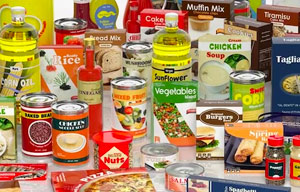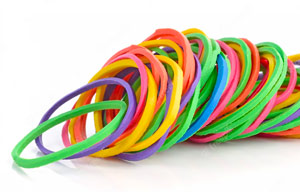Pemerintah Korea Selaan menetapkan Sistem Managemen Kemanan Pangan Impor (Imported Food Safety Management System). Sistem Keamanan Pangan ini menjadi sangat penting untuk mencegah kemungkinan adanya zat berbahaya dalam makanan yang diimpor.
Berikut skema impor makanan/pangan di Korea Selatan.

Ekspotir Indonesia harus bekerja sama dengan importir di Korea untuk menjalankan pprosedur impormakanan ke Korea.
Persyaratan wajib yang harus dipenuhi untuk ekspor makanan olahan ke Korea Selatan
Dalam kebijakan impor, Korea Selatan menerapkan beberapa landasan hukum terkait dengan perijinan masuk untuk produk makanan olahan (diluar daging, ikan ,dan unggas), seperti :
- Food Sanitation Act ditujukan untuk menjamin higienitas suatu produk secara menyeluruh, sehingga diharapakan bisa meningkatkan kualitas kesehatan masyarakat melalui kemajuan kualitatif produk pangan.
- Plant Quarantine Act ditujukan pada segala jenis tanaman, buah-buahan, sayur-sayuran untuk menghindari bahaya penyebaran hama dan penyakit yang dapat disebarkan melalui produk-produk tersebut.
- Food Labeling Law merupakan regulasi dimana produsen perlu menyertakan informasi mengenai produk makanan pada kemasan, sehingga konsumen dapat memilih produk sesuai dengan informasi tersebut.
Setiap produk yang akan memasuki pasar Korea Selatan diwajibkan memenuhi syarat dan ketentuan bedasarkan kebijakan diatas, dan untuk memastikan keabsahannya ekspotir perlu menghubungi instasi terkait serta mengumpulkan dokumen-dokumen terkait dengan bahan baku produksi, proses pembuatan, tujuan pemasaran produk, dan contoh produk sebelum melalui tahap uji kelayakan produk.
Namun, jika berdasarkan proses manufaktur maupun proses pengemasannya kualitas daripada produk tersebut sudah memenuhi syarat tertentu, maka ada beberapa pengecualian untuk tidak melalui proses karantina, diantaranya :
Namun, jika berdasarkan proses manufaktur maupun proses pengemasannya kualitas daripada produk tersebut sudah memenuhi syarat tertentu, maka ada beberapa pengecualian untuk tidak melalui proses karantina, diantaranya :
- Makanan olahan yang dawetkan dalam larutan gula, larutan garam, minyak, maupun senyawa kimia organic dengan kandungan antiseptic
- Produk dengan bahan baku pilihan serta telah diproses secara higienis sehingga tidak memungkinkan bagi bakteri maupun hama untuk bertahan hidup
-
Proses higienitas produk tersebut meliputi :
-
Buah-buahan yang sudah dipotong, kemudian dikukus, ataupun direbus selama lebih dari lima menit hingga mencapai suhu 90 derajat sebelum dibekukan dalam suhu -17 derajat
- Buah-buahan yang sudah dikeringkan maupun diproses dalam suhu tinggi, dan dibungkus dalam wadah kedap udara
- Panganan yang sudah diproses menjadi bubuk dan dikemas dalam wadah kedap udara
Labeling
Label merupakan salah satu aspek penting dalam pemasaran produk. Eksportir harus menyertakan label produk maupun label kemasan.
Label merupakan salah satu aspek penting dalam pemasaran produk. Eksportir harus menyertakan label produk maupun label kemasan.
Label Produk
Beberapa hal yang perlu disertakan dalam label produk adalah sebagai berikut:
- Nama dan jenis produk
- Negara asal pembuatan
- Daftar bahan baku utama (termasuk masa jenis dan persentase)
- Bahan aditif makanan
- Informasi nilai gizi
- Saran penyimpanan
- Nama, alamat, dan no. telp importir
- Nomor lisensi importir
- Tanggal produksi
- Tanggal kadaluarsa
- Alamat untuk pengembalian barang jika ada kerusakan
- Peringatan terkait gangguan kesehatan
Label Kemasan
Sejak diberlakukannya sistem eco-labeling di tahun 2009, jumlah produk dengan kemasan ramah lingkungan menjadi semakin meningkat di pasaran, Pasalnya produsen dapat memperoleh akreditasi jika menyertakan label eco-friendly pada produknya. Disamping itu, melalui kebijakan ini pemerintah juga telah berhasil mewujudkan prinsip pengolahan sampah 3R (recycle, reuse, dan reduce) di Korea Selatan. Karenanya bagi produsen lokal maupun luar diwajibkan untuk menyertakan label “Pemisahan Sampah” (Segregated Waste Collection) berdasarkan jenis kemasan yang digunakan.
Sebagai catatan, untuk menghindari masuknya jenis logam beracun, maka KFDA menetapkan larangan penggunaan bahan-bahan seperti timah, kadmium, merkuri, dan kromium, diatas 100ppm. Beberapa perusahaan produk makanan olahan di Korea Selatan, seperti Orion misalnya, sudah beralih menggunakan tinta berbasis minyak sayur pada kemasannya sebagai bentuk kepedulian terhadap lingkungan.
Secara umum, deskripsi isi di kemasan produk perlu memuat:
Sejak diberlakukannya sistem eco-labeling di tahun 2009, jumlah produk dengan kemasan ramah lingkungan menjadi semakin meningkat di pasaran, Pasalnya produsen dapat memperoleh akreditasi jika menyertakan label eco-friendly pada produknya. Disamping itu, melalui kebijakan ini pemerintah juga telah berhasil mewujudkan prinsip pengolahan sampah 3R (recycle, reuse, dan reduce) di Korea Selatan. Karenanya bagi produsen lokal maupun luar diwajibkan untuk menyertakan label “Pemisahan Sampah” (Segregated Waste Collection) berdasarkan jenis kemasan yang digunakan.
Sebagai catatan, untuk menghindari masuknya jenis logam beracun, maka KFDA menetapkan larangan penggunaan bahan-bahan seperti timah, kadmium, merkuri, dan kromium, diatas 100ppm. Beberapa perusahaan produk makanan olahan di Korea Selatan, seperti Orion misalnya, sudah beralih menggunakan tinta berbasis minyak sayur pada kemasannya sebagai bentuk kepedulian terhadap lingkungan.
Secara umum, deskripsi isi di kemasan produk perlu memuat:
- standar kalkulasi “sekali saji” (per serving)
- informasi nutrisi “Trans Fatty Acids”
- Trans Fatty Acids dapat ditulis “0 g” jika kurang dari 0,2 g per sajian.
- Mengembangkan label untuk produk irradiated foods (makanan yang teradiasi).
- Membesarkan penulisan tanggal berlaku (expiry date) dan mengatur dimana menuliskan tanggal tersebut.
- Memasukkan label “best before” untuk produk makanan yang diatur oleh KFDA
- Memasukkan label “hypersensitivity” untuk produk makanan yang diatur oleh KFDA (termasuk produk udang)
- Menghitung prosentase kandungan organik dari total kandungan termasuk garam dan air.
When food and food additives are imported after manufactured by overseas contractor and labeled with the contractee's brand, the contractee must conduct sanitation inspection and product quality inspection in the contractor's facilities
- Food for special uses (infant formula, growth formula, cereals, all other food products designated for the infant and child market) > Review once per year
- Other food products Review more than once every two years
- When it is demonstrated that the sanitation level is maintained in accordance with international standards of which the level is equal to, or higher than, the standards set by the KFDA Notification
- When the product is manufactured by an excellent import business
- Other food products Review more than once every two years
- When it is demonstrated that the sanitation level is maintained in accordance with international standards of which the level is equal to, or higher than, the standards set by the KFDA Notification
Article 30, Clause 1 of the Enforcement Decree of the Food Sanitation Act (prescribing matters including parties to conduct sanitation inspection)
- Other food products Review more than once every two years
- When it is demonstrated that the sanitation level is maintained in accordance with international standards of which the level is equal to, or higher than, the standards set by the KFDA Notification
- When the product is manufactured by an excellent import business
- Other food products Review more than once every two years
- Other food products Review more than once every two years
- When it is demonstrated that the sanitation level is maintained in accordance with international standards of which the level is equal to, or higher than, the standards set by the KFDA Notification
- When the product is manufactured by an excellent import business
- Other food products Review more than once every two years
- When it is demonstrated that the sanitation level is maintained in accordance with international standards of which the level is equal to, or higher than, the standards set by the KFDA Notification
When food and food additives are imported after manufactured by overseas contractor and labeled with the contractee's brand, the contractee must conduct sanitation inspection and product quality inspection in the contractor's facilities
Food for special uses (infant formula, growth formula, cereals, all other food products designated for the infant and child market) > Review once per year
Food for special uses (infant formula, growth formula, cereals, all other food products designated for the infant and child market) > Review once per year
Article 30, Clause 1 of the Enforcement Decree of the Food Sanitation Act (prescribing matters including parties to conduct sanitation inspection)
- Other food products Review more than once every two years
- When it is demonstrated that the sanitation level is maintained in accordance with international standards of which the level is equal to, or higher than, the standards set by the KFDA Notification
- When the product is manufactured by an excellent import business
- Other food products Review more than once every two years
- Other food products Review more than once every two years
- When it is demonstrated that the sanitation level is maintained in accordance with international standards of which the level is equal to, or higher than, the standards set by the KFDA Notification
- When the product is manufactured by an excellent import business
- Other food products Review more than once every two years
- When it is demonstrated that the sanitation level is maintained in accordance with international standards of which the level is equal to, or higher than, the standards set by the KFDA Notification
When food and food additives are imported after manufactured by overseas contractor and labeled with the contractee's brand, the contractee must conduct sanitation inspection and product quality inspection in the contractor's facilities
Food for special uses (infant formula, growth formula, cereals, all other food products designated for the infant and child market) > Review once per year
Food for special uses (infant formula, growth formula, cereals, all other food products designated for the infant and child market) > Review once per year
Article 30, Clause 1 of the Enforcement Decree of the Food Sanitation Act (prescribing matters including parties to conduct sanitation inspection)
- Other food products Review more than once every two years
- When it is demonstrated that the sanitation level is maintained in accordance with international standards of which the level is equal to, or higher than, the standards set by the KFDA Notification
- When the product is manufactured by an excellent import business
- Other food products Review more than once every two years
- Other food products Review more than once every two years
- When it is demonstrated that the sanitation level is maintained in accordance with international standards of which the level is equal to, or higher than, the standards set by the KFDA Notification
- When the product is manufactured by an excellent import business
- Other food products Review more than once every two years
- When it is demonstrated that the sanitation level is maintained in accordance with international standards of which the level is equal to, or higher than, the standards set by the KFDA Notification
Registration for Prior Inspection Completion System
To secure safety of food imports by preemptively identifying any food safety hazards in manufacturing and processing facilities either by; conducting onsite inspections or, requiring the exporting country government to administer inspections and report the results.
Legal Basis
- Article 19 of the Food Sanitation Act and Article 15 of its Enforcement Rule
- Article 8 of「The Health Function Food Act」and Article 11 of its Enforcement Rule
Outline
Qualification
Food, food additives, utensils, containers, and packages to be exported to Korea ( agricultural and forestry food products and other food products made though simple processing are excluded)
Health function food
Food, food additives, utensils, containers, and packages to be exported to Korea ( agricultural and forestry food products and other food products made though simple processing are excluded)
Health function food
Application procedures
Applying for registration for Prior Inspection Completion (required documents must be attached) > evaluation of documents > onsite inspection > final evaluation and determination > registration, notification
Applying for registration for Prior Inspection Completion (required documents must be attached) > evaluation of documents > onsite inspection > final evaluation and determination > registration, notification
Required documents
- Supporting documents with details of food products (product name, mixing ratio of ingredients, manufacturing process)
- Original test reports or test certificates issued by certified public test agencies based in the Republic of Korea or foreign countries
- Documents of addresses of manufacturing and processing facilities, building arrangement map (machinery, equipment layout included), factory floor plan, etc.
Inspection Items
- whether or not the products should be included in the sales prohibition list with safety hazards
- whether or not the product's criteria and standards are adequate
- whether or not the facilities meet prescribed minimum standards
- whether or not there are any false or misleading labels
- whether or not the product satisfies HACCP (Hazard Analysis Critical Control Point) standards
Incentives
Expedited customs clearance without close inspection and random sampling inspection
Expedited customs clearance without close inspection and random sampling inspection
Costs
Application charge of KRW 28,000
Travel expenses for onsite inspectors (air fares, daily expenditure, lodging and meals in accordance with the ROK Public Officials' Travel Expense Guideline)
Application charge of KRW 28,000
Travel expenses for onsite inspectors (air fares, daily expenditure, lodging and meals in accordance with the ROK Public Officials' Travel Expense Guideline)
Requirement for Health Functional Foods
Classification of Health Functional Foods
Without Pre-approval
Functional ingredients / products which risk assessment has been conducted by KFDA
When this type of product is imported, it goes to Lab test whether it conforms with stadards
Functional ingredients / products which risk assessment has been conducted by KFDA
When this type of product is imported, it goes to Lab test whether it conforms with stadards
Required for Preapproval
Functional ingredients / products which risk assessment has not been conducted by KFDA are required for pre-approval
☞ Please contect Health Functional Food Standard Division
Functional ingredients / products which risk assessment has not been conducted by KFDA are required for pre-approval
☞ Please contect Health Functional Food Standard Division
Comparison between functional ingredients and product
Ingredients
Packed in bulk or in large volume of units for further processing / manufacture
Semi-products can be included which are mixed with minor ingredients such as fructose, starch, glucose or seasoning
Packed in bulk or in large volume of units for further processing / manufacture
Semi-products can be included which are mixed with minor ingredients such as fructose, starch, glucose or seasoning
Products
goods which consumer can have in retail and which have appearance of tablet, capsule, powder, liquid, granule, flake, paste, syrup, gel, jelly or bar
Every ingredients, Health claim(functionality), Daily dose/intake, caution(allergy, side effects etc.) are labelled on the package for consumer
Documents related to Genetically Modified Organisms
Scope of GMO labelling
- Foods contained soybean, corn, cottonseed, rapeseed, sugar beet or it’s sprouts as main ingredients(up to the 5th largest ingredients in contents)
| Scope of GM Labelling | Scope of GM Labelling | Exempt from GM Labelling |
| Agricultural products | LMOs which KFDA approves to import | IP Handling or Export Certificate has been submitted to prove ※ unintentional adulteration : not more than 3% |
| Processed Foods | Processed foods which contained GMO as ingredients | o Isolated agricultural produce from GM which attached with IP Handling or Export Certificate ※ unintentional adulteration : not more than 3% o Including GM ingredients, but § contents of GM ingredient is less than the 5th largest ingredients § analysis certificate ca prove that any GM ingredients do not exist in final good ※ soysauce, oil, sugar, alcoholic beverages, etc |
Organic Certificate
- Scope : imported foods labelled "organic"
- A copy of organic certificate is required to submit which can be issued by organic certification bodies accredited by IFOAM or by exporting country
Transaction certificate or Ingredient list can be required to confirm
※ From 2011, any product labelled "organic" will be required to be certified according to ‘Food Industry Promotion Act’ (for details of organic certification, please contact National Agriculture
※ From 2011, any product labelled "organic" will be required to be certified according to ‘Food Industry Promotion Act’ (for details of organic certification, please contact National Agriculture
Products Quality Management Service)
Analysis Certificate / Organic Certificate
Laboratory Analysis Certificate
- KFDA commissioner approves overseas laboratories after on-site inspection
Certificate of analysis issued by overseas laboratories can be substituted for inspection at the border
☞ For Information of Approved Overseas Laboratories
☞ ENGLISH (an enhanced button at the top of the page)
※ Please check an operating country and scope of analysis for each laboratory
☞ For Information of Approved Overseas Laboratories
☞ ENGLISH (an enhanced button at the top of the page)
※ Please check an operating country and scope of analysis for each laboratory
Organic Certificate
-
Scope : imported foods labelled "organic"
-
A copy of organic certificate is required to submit which can be issued by organic certification bodies accredited by IFOAM or by exporting country
Transaction certificate or Ingredient list can be required to confirm
※ From 2011, any product labelled "organic" will be required to be certified according to ‘Food Industry Promotion Act’ (for details of organic certification, please contact National Agriculture Products Quality Management Service)
※ From 2011, any product labelled "organic" will be required to be certified according to ‘Food Industry Promotion Act’ (for details of organic certification, please contact National Agriculture Products Quality Management Service)
Details on Inspection of Imported Foods
Same Product
Factors determining the same product from the same company
-
Processed foods, food additives : importer·country of origin· manufacturer·product name·processing flow and every ingredients are identical
-
Agricultural products : importer·country of origin·manufacturer· category of produce·exporter and packer are identical
-
Utensils, containers & packages : importer·country of origin· manufacturer·food-contact material and color are identical
Type of Inspection
-
Document Review (2 days)
-
Once the product conforms with standard as a result of laboratory test, the next consignment of the same product goes to document review
-
Ingredients for processing
-
Flavour(food grade) and utensils·containers made with woods or stones
-
Sensory Test (3 days)
-
Once agricultural produce conforms with standard as a result of lab analysis, the next consignment of the same produce goes to sensory test
-
Any product which is required for checking characteristics(flavor, taste, color), storage, labelling and/or package
-
Laboratory Test (10 days, 14 days for canned or retort foods)
-
The first import of a product
-
The product with rejection record or risk information from various sources
-
In case that standards or specification has been changed<>/
-
Random Sampling Test (5 days)
-
Products are chosen by KFDA system according to annual random sampling plan
-
Category of Foods
-
Agricultural Products : fresh, chilled, dehydrated, frozen or minimally processed products
-
Processed Foods
-
Food Additives
-
Utensils, Containers & Packages : in contact with foods or food additives
-
Health Functional Foods
Purpose of Import
-
For sale : registered importer can import foods for sale
-
For processing : registered food manufacturer can import foods for processing
Address of Manufacturer / Processor
-
It is required to state address of place where the product is actually manufactured or processed
-
It is not admitted to state address of headquarter or distribution office
Ingredients, Components, Materials
-
Foods : Name of every ingredients or components has to be stated.
-
Quantity of food additives has to be stated when the food additives have limitation in use in Korea Food Additive Code.
-
Utensils, Containers & Packages : Every food-contact materials has to be stated
-
Processing flow
-
Processing flow and solvent / enzyme used have to be stated
Scope required for Food Import Report
Foods or Health functional foods imported for commercial purposes
| Food Sanitation Act | Health Functional Food Act | |||
| Agricultural Products |
Processed Foods |
Food Additives |
Utensils, Containers & Packages |
Health Functional Foods |
Competent Authority
Imported Agricultural Products, Processed Foods, Food Additives, Utensils, Containers & Packages or Health Functional Foods
KFDA (Korea Food and Drug Administration)
KFDA (Korea Food and Drug Administration)
Imported Livestock, Livestock products (including Dairy products)
→ NVRQS (National Veterinary Research and Quarantine Service)
Packaged meat, milk & dairy products(butter, cheese), hamburger patties, meat ball and other processed products which are stipulated by Livestock Sanitation Management Act
→ NVRQS (National Veterinary Research and Quarantine Service)
Packaged meat, milk & dairy products(butter, cheese), hamburger patties, meat ball and other processed products which are stipulated by Livestock Sanitation Management Act
Imported Marine products
→ NFIS (National Fisheries Products Quality Inspection Service)
Please be reminded of this checklist before you report
Fresh, chilled, frozen, salted, dehydrated, eviscerated marine produce which can be recognized its characteristics
→ NFIS (National Fisheries Products Quality Inspection Service)
Please be reminded of this checklist before you report
Fresh, chilled, frozen, salted, dehydrated, eviscerated marine produce which can be recognized its characteristics











